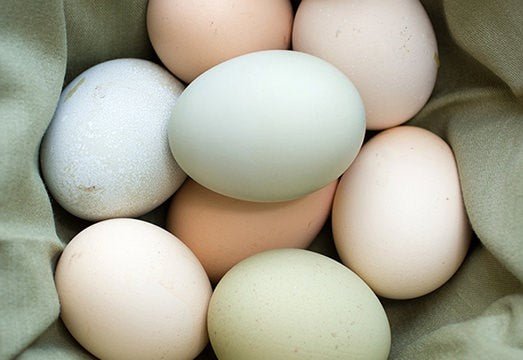When Chickens Stop Laying Eggs: Causes and Solutions
Chickens are wonderful creatures that bring joy and nourishment to many households. They are known for their delicious eggs, which are a staple in many people's diets. However, like all living creatures, chickens eventually stop laying eggs. This can be frustrating for chicken owners who rely on their eggs for sustenance or income. In this article, we will explore the reasons why chickens stop laying eggs and provide solutions to help increase egg production.
Causes of Decreased Egg Production
There are several reasons why chickens may stop laying eggs. Some of these causes are natural and cannot be avoided, while others can be prevented or corrected with proper care and attention. Below are some of the most common causes of decreased egg production in chickens:
Age
The most common reason for decreased egg production is age. As chickens age, their egg production decreases. Most chickens will lay eggs consistently for the first two to three years of their life, after which their egg production will slowly decline. By the time a chicken reaches five years of age, it is considered a senior chicken and may only lay a few eggs per week, or none at all.
Seasonal Changes
Chickens are sensitive to changes in daylight hours and temperature. As the days get shorter and colder, chickens may naturally decrease their egg production. This is because they need more energy to stay warm and may not have enough energy left over to produce eggs. As the days get longer and warmer, chickens will usually resume laying eggs.
Stress
Stress can cause chickens to stop laying eggs. Stressful events such as predator attacks, changes in their environment, or even loud noises can disrupt a chicken's laying schedule. Chickens that are stressed may also stop eating and drinking, which can further decrease their egg production.
Poor Nutrition
Chickens need a balanced diet to produce eggs. If they are not getting enough nutrients, their egg production may decrease. Some of the most important nutrients for egg production are protein, calcium, and vitamin D. Chickens that are not getting enough of these nutrients may produce fewer eggs, or their eggs may have thin shells.
Illness
Illness can cause a chicken to stop laying eggs. Common illnesses that can decrease egg production include infectious bronchitis, Newcastle disease, and avian influenza. Chickens that are sick may also show other symptoms such as lethargy, loss of appetite, or difficulty breathing.
Solutions to Increase Egg Production
If your chickens have stopped laying eggs, there are several steps you can take to help increase their egg production. The solutions listed below can help address the most common causes of decreased egg production:
Provide a Balanced Diet
One of the most important things you can do to increase egg production is to provide your chickens with a balanced diet. Make sure they are getting enough protein, calcium, and vitamin D. You can do this by feeding them a high-quality layer feed, or by supplementing their diet with treats such as mealworms, oyster shells, or greens.
Reduce Stress
Reducing stress in your chickens' environment can help increase egg production. Make sure they have a safe and secure coop and run, free from predators and loud noises. Keep their environment clean and well-ventilated, and make sure they have access to fresh water and food at all times.
Provide Plenty of Light
Chickens need at least 14 hours of daylight to lay eggs consistently. If your chickens are not getting enough daylight, consider adding a supplemental light source to their coop. You can use a simple bulb or a more complex system that mimics natural daylight cycles. Just make sure the light source is not too bright or too close to the chickens, as this can cause stress.
Address Health Issues
If your chickens are not laying eggs and you suspect they may be ill, it is important to address the issue as soon as possible. Consult with a veterinarian who specializes in poultry to determine the cause of the illness and develop a treatment plan. In some cases, medication may be necessary to help the chicken recover and resume laying eggs.
Consider Adding New Hens
If your older hens have stopped laying eggs, consider adding new hens to your flock. Younger hens are more likely to lay eggs consistently and can help increase your overall egg production. When introducing new hens, be sure to quarantine them for at least two weeks to prevent the spread of disease.
It is natural for chickens to eventually stop laying eggs as they age. By understanding the common causes of decreased egg production and taking steps to address them, you can help your chickens produce eggs for as long as possible. Remember to provide your chickens with a balanced diet, reduce stress in their environment, provide plenty of light, address health issues promptly, and consider adding new hens to your flock. By following these tips, you can enjoy a consistent supply of fresh, delicious eggs from your chickens for years to come.
Disclaimer: Some of the links on this page are affiliate links. This means that if you click on the link and purchase the item, I may receive a commission (at no extra cost to you). All opinions remain my own. I am a participant in the Amazon Services LLC Associates Program, an affiliate advertising program designed to provide a means for me to earn fees by linking to Amazon.com and affiliated sites.

